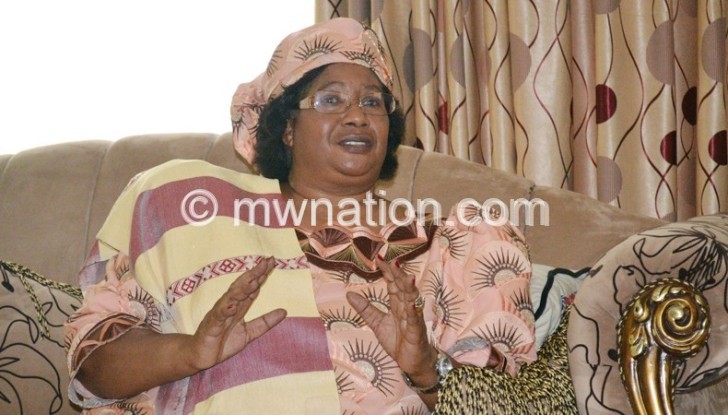Intolerance rocks political parties
Political analysts have blamed the rise of intolerance in the country’s major political parties on the one-party hangover which exposes leaderships archaic and undemocratic ways of managing differences.
The analysts reactions come against the background of recent increase in political differences of opinion in represented in Parliament—the governing Democratic Progressive Party (DPP), Malawi Congress Party (MCP), People’s Party (PP) and United Democratic Front (UDF).the four major political parties.

For the past weeks and months, political hostilities have been under the spotlight over what the analysts say are a result of ineffective conflict management and resolution mechanisms by the leaderships.
Leadership disagreements and intra-party democracy problems continue to rock the former governing PP, the second biggest opposition in Parliament after MCP.
MCP president Lazarus Chakwera’s changes in the MCP’s policy making body—the national executive committee (NEC)—have also brought discontent within the party’s rank and file and could derail rebuilding and repositioning efforts ahead of 2019.
For PP, it is the leadership wrangles and intolerance to dissenting views in the party that is tearing the former ruling grouping.
To date, PP has expelled its two legislators, Patrick Makina of Zomba Ntonya and Christopher Mzomera Ngwira of Mzimba Hora. Makina is accused of not working in the interest of the party whereas Ngwira was booted out for demanding leadership change in the absence of founding president Joyce Banda.
DPP is also not one big happy family either with the party visibly working hard to suppress and sideline its Mulanje South legislator Bon Kalindo largely for demanding more government action against albino killings and abductions.
Apparently, the party brass believes that Kalindo is trying to portray the administration as doing too little on the albino issue. Under pressure, Kalindo last week resigned as deputy publicity secretary for DPP, but remains a member of its politburo.

Further in MCP, the party’s spokesperson and Salima North West MP Jessie Kabwila and Salima Central legislator Felix Jumbe were cautioned at Chakwera’s recent rally in Salima.
Jumbe confirmed in an interview that he was warned by some party loyalists against attending Chakwera’s recent rally in Salima (he eventually attended) for allegedly working with the DPP.
Political scientist Michael Jana from Chancellor College, a constituent college of the University of Malawi (Unima), said in an interview intra-party wrangles are on the rise because the political parties are failing to effectively handle the conflicts.
In an e-mailed response, he said: “I understand some cases may border on indiscipline, but I think the cross-cutting picture that emerges is that most party leaderships do not tolerate dissenting views and the parties lack effective conflict management and resolution mechanisms.
“That is why you find that members who disagree with the leadership may end up being physically harassed in public rallies.”
Jana said while any organisation is bound to have differences, instead of resolving them, parties just create further animosity and adversaries and end up losing membership because they are viewed as enemies who deserve harassment.
He said: “That just exposes the parties’ primitive and undemocratic ways of handling conflict.”
But political scientist Mustapha Hussein, also from Chancellor College, said intra-party intolerance was strengthening because leaderships have a hangover of single party politics the country practised during the 31-year-old era of the MCP.
He said: “I think the parties have not yet shed off the type of politics practised under the one party era of MCP where leaders never gave room to dissenting views and that is perpetuating intolerance.”
Hussein also noted that the conflicts zeroed in on lack of institutionalisation of political parties as many are taken as personal entities; hence, any dissenting views are taken as rebellion.
Last week, the Economist Intelligence Unit (EIU) of the reputed The Economist magazine, in its 2016 second quarter forecast report for Malawi generated on June 28 2016, observed that internal wrangles were weakening the opposition parties ahead of the 2019 general elections.
MCP and PP have dismissed this analysis, saying it is not reflective of reality on the ground.






MCP shall never win an election until Christ returns. I may appear joking but it is a fact.